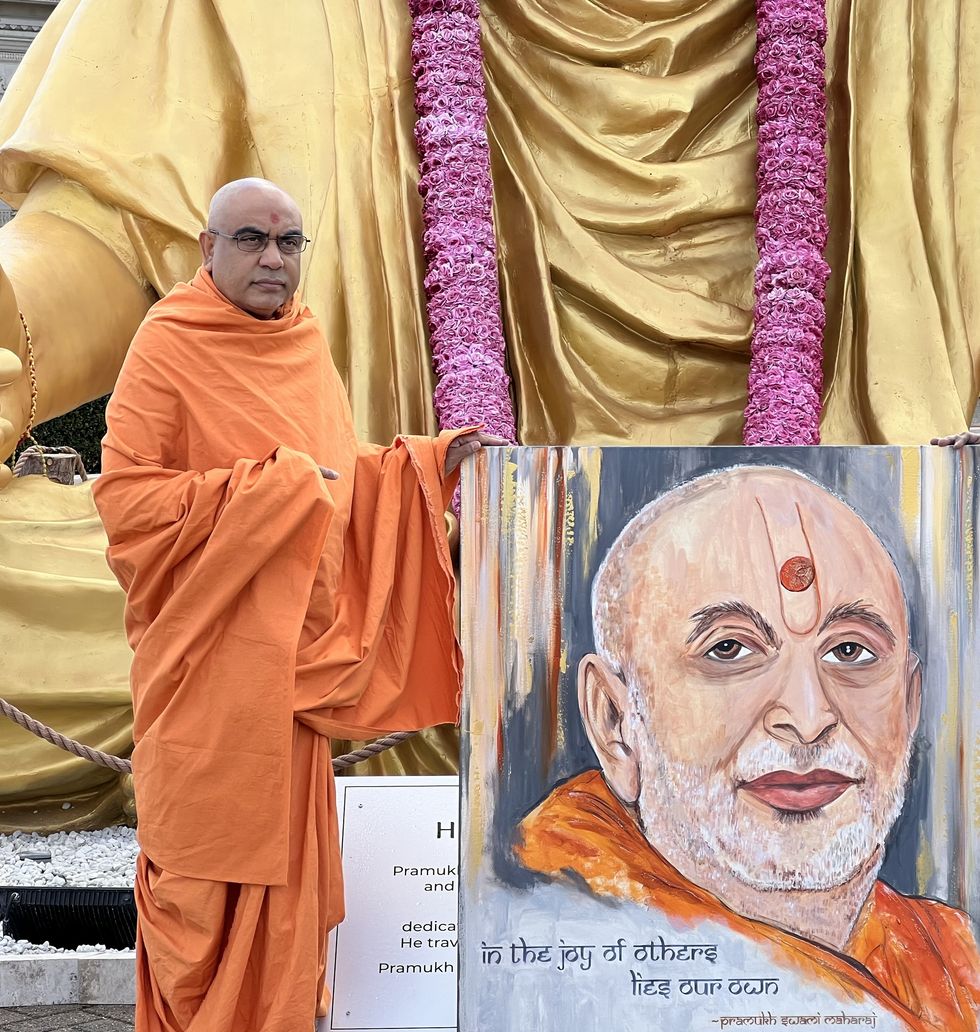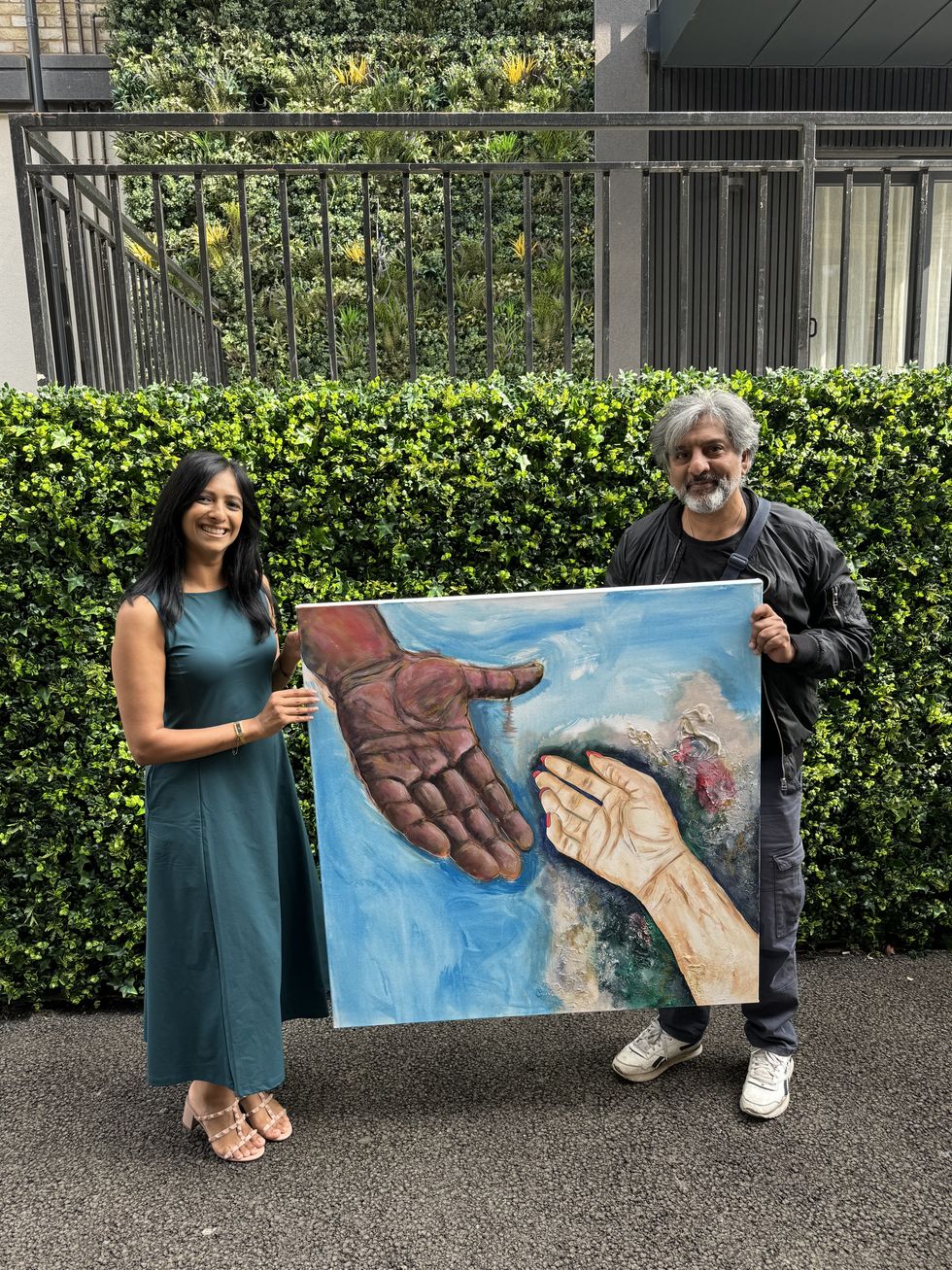Facing separation due to stringent income thresholds in the UK, multinational families are preparing legal action against what they regard as a "cruel and inhumane" policy.
The government's decision to elevate the income threshold for family reunification, requiring individuals to earn £38,700 instead of the previous £18,600 starting next spring, threatens numerous families.
This substantial increase could force families with one British partner and one born abroad to either live apart or leave the UK to remain together, The Guardian reported.
To challenge these changes, Reunite Families, an organisation aiding those impacted by immigration rules, has engaged the legal expertise of Leigh Day.
The changes, announced by Home Secretary James Cleverly on December 4, are being contested as punishing individuals "for falling in love," as expressed by a family affected by these regulations.
Hundreds of individuals affected by the impending changes expressed their fears of being compelled to leave the UK to remain with their foreign partners, a decision that could drastically disrupt their lives.
Among them are professionals employed in sectors with severe shortages, notably in care and social work.
A 50-year-old care worker lamented how the new rule disrupted their aspirations for a contented future, while a 35-year-old academic conveyed their fear and anxiety over the stringent regulations.
A marketing manager condemned the policy, highlighting the cruelty of separating families, while a 35-year-old music teacher, facing a relocation to Kazakhstan, described the loss of stability they had diligently worked towards.
An administrator at the University of Cambridge, along with her partner from Morocco, shared the challenges they face due to the existing salary threshold, expressing how age-related fertility problems and the current system have deprived them of the opportunity to start their own family.
The announcement of this measure was framed by Cleverly as a "crackdown on those who try to jump the queue and exploit our immigration system."
Grounds for potential legal challenges are emerging, including scrutiny of the government's handling of impact assessments for the rule change, questions about the basis for the new £38,700 income minimum, and considerations of whether the change infringes on the right to family life under the 70-year-old European Convention of Human Rights, to which the UK remains bound.
Caroline Coombs, the co-founder, and chief executive of Reunite Families, expressed the profound distress within the community, describing the threshold as a "horrendous shock for tens of thousands of British citizens and their loved ones." She criticised the timing of the declaration just before Christmas, leaving people without sufficient details, deeming it "utterly cruel."
New analysis indicates that the doubling of the threshold will create a significant disparity, affecting large parts of the UK and making it financially impossible for most people to live with a partner from abroad.
This development is predicted to generate a new north-south divide, with over 60% of people, and up to 75% in the north-east of England.
Reunite Families has taken legal action, seeking advice from law firm Leigh Day on potential legal avenues.
Expressing frustration at the lack of information on the policy, the organization called for more details from the home secretary, emphasising the urgent need for answers.
The government has left open the possibility that families already living together in the UK may face separation or relocation if they fail to meet the new criteria during visa renewal.
The Home Office has promised to provide more details in due course, but the lack of immediate answers has raised concerns about the impact on families during the holiday season.
Reunite Families urged the government to act promptly, highlighting the heartbreaking reality that many families may not get the chance to be together, especially during a time meant for joy and togetherness.
Cleverly indicated a forward-looking approach to the new rules, suggesting that multinational families already residing in the UK and earning below the salary threshold might still be considered safe.
The Supreme Court has previously challenged the government's visa rules. In February 2017, it mandated changes to the enforcement of the existing minimum income rule, emphasising the government's responsibility to protect and advance children's welfare.
When an applicant for a family visa fails to meet the income threshold, decision-makers were directed to consider "exceptional circumstances" where refusal might violate the right to family life under the European Convention on Human Rights.
Opposition to the threshold change has come from various quarters, including the Archbishop of Canterbury, Justin Welby, who expressed concern over the "negative impact" on family relationships.
Additionally, Labour's Shadow Home Secretary, Yvette Cooper, warned that the new rules could lead to a surge in hurried marriages in the months preceding their implementation.
The marriage guidance charity Relate has expressed concerns about the potential risks associated with a hurried rush to solidify relationships ahead of the impending increase in the income threshold.
Ammanda Major, the head of service quality and clinical practice, highlighted the challenges of entering a long-term relationship prematurely.
She emphasised the emotional strain and difficulties that might arise when pressured into such decisions, cautioning against feeling compelled by external pressures. She also warned about becoming oblivious to potential issues in the haste of the moment.
The Home Office justified the higher salary threshold by stating the necessity for family members from abroad joining British citizens to not place a burden on the state.
It mentioned exemptions in exceptional circumstances where refusal could lead to excessively severe consequences for the applicant, their partner, or other family members.
A Home Office spokesperson reiterated the prime minister's stance on migration levels, emphasising the importance of financial self-sufficiency for families coming to the UK.
The minimum income requirement aims to ensure self-sustainability, promoting integration for those seeking to actively participate in British society.
















 Prabhas in a still from Kalki 2898 AD which completed one yeargetty images
Prabhas in a still from Kalki 2898 AD which completed one yeargetty images Kalki 2898 AD became one of the top three biggest openers in Indian cinemagetty images
Kalki 2898 AD became one of the top three biggest openers in Indian cinemagetty images Kalki 2898 AD brought together sci-fi and mythology in a first-of-its-kind Indian filmgetty images
Kalki 2898 AD brought together sci-fi and mythology in a first-of-its-kind Indian filmgetty images Prabhas plays the futuristic warrior Bhairava in Kalki 2898 AD getty images
Prabhas plays the futuristic warrior Bhairava in Kalki 2898 AD getty images Prabhas in action during a high-intensity sequence from Kalki 2898 ADgetty images
Prabhas in action during a high-intensity sequence from Kalki 2898 ADgetty images
 Kulsuma Aktergetty images
Kulsuma Aktergetty images
 Shreena Patel
Shreena Patel
 Shreena Patel's work
Shreena Patel's work Shreena Patel's work
Shreena Patel's work

 Shreena Patel's work
Shreena Patel's work Shreena Patel's work
Shreena Patel's work